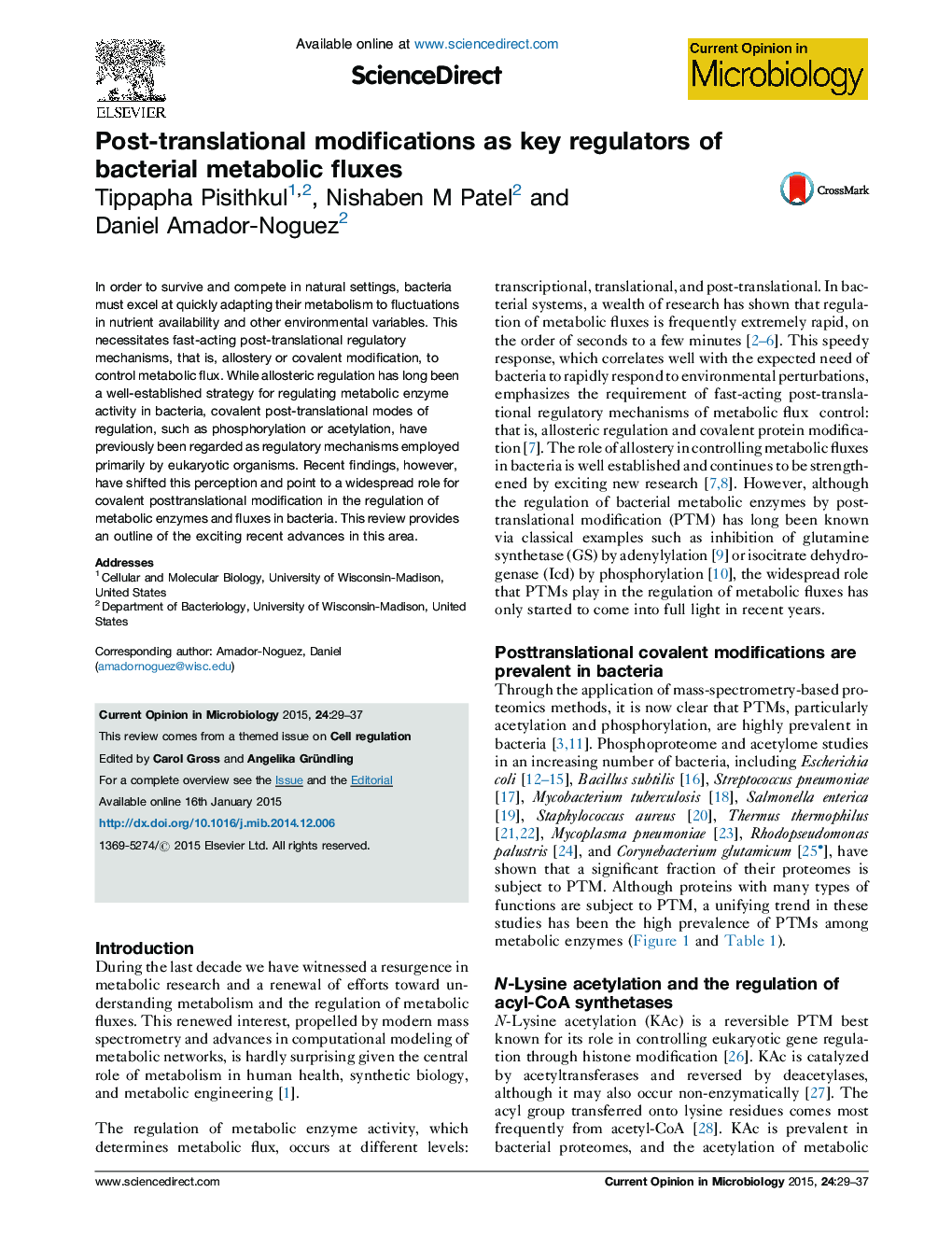| Article ID | Journal | Published Year | Pages | File Type |
|---|---|---|---|---|
| 3399049 | Current Opinion in Microbiology | 2015 | 9 Pages |
•Post-translational modifications are widespread in bacterial metabolic enzymes.•Lysine-acetylation regulates the activity of acyl-CoA synthetases.•Phosphorylation plays diverse roles in metabolic regulation.•Succinylation, pupylation, and glutarylation are PTMs surprisingly prevalent in bacteria.•The in vivo functionality of most bacterial PTMs remains to be elucidated.
In order to survive and compete in natural settings, bacteria must excel at quickly adapting their metabolism to fluctuations in nutrient availability and other environmental variables. This necessitates fast-acting post-translational regulatory mechanisms, that is, allostery or covalent modification, to control metabolic flux. While allosteric regulation has long been a well-established strategy for regulating metabolic enzyme activity in bacteria, covalent post-translational modes of regulation, such as phosphorylation or acetylation, have previously been regarded as regulatory mechanisms employed primarily by eukaryotic organisms. Recent findings, however, have shifted this perception and point to a widespread role for covalent posttranslational modification in the regulation of metabolic enzymes and fluxes in bacteria. This review provides an outline of the exciting recent advances in this area.
